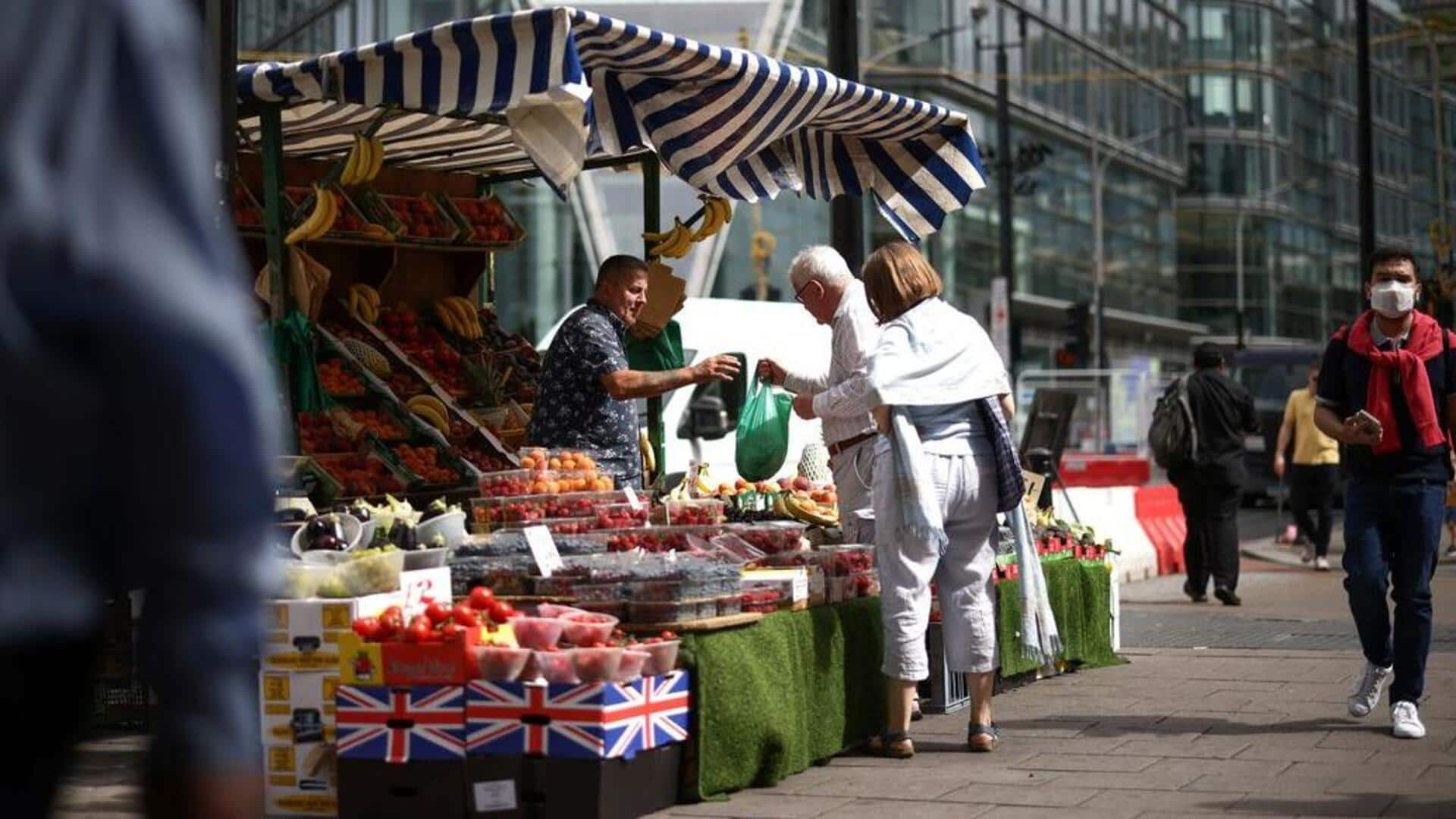
UK is still in danger of recession despite falling inflation
What's the story
Inflation in the UK has dipped to 6.8% in July, marking its lowest point since February 2022.
It has come down primarily due to energy regulator Ofgem's decision to adjust the energy price cap.
This change has had a positive impact on the prices of everyday essentials such as milk, bread, and fuel.
However, core inflation remains at 6.9%, and food prices are still seven times higher than they were a year ago.
Details
Higher interest rates can hinder economic recovery
Despite the decrease in inflation, the risk of recession may have increased, as suggested by the IPPR's Centre for Economic Justice.
The Bank of England has consecutively raised interest rates 14 times, with the current rate standing at 5.25%.
Furthermore, the Bank plans to maintain these high rates for two years, which could potentially hinder economic recovery efforts amidst falling consumer confidence and rising unemployment.
What Next?
More rate hikes could increase prices in other areas
The Bank of England forecasts that inflation will drop to 5% by the end of 2023, a figure still significantly above its 2% target.
However, recent wage growth figures add complexity to the situation, as pay has increased by 7.8% in the three months leading up to June.
This development could prompt further base rate hikes at the upcoming review in September. Experts believe that more rate hikes could increase prices in other areas, offsetting the benefits of falling inflation.